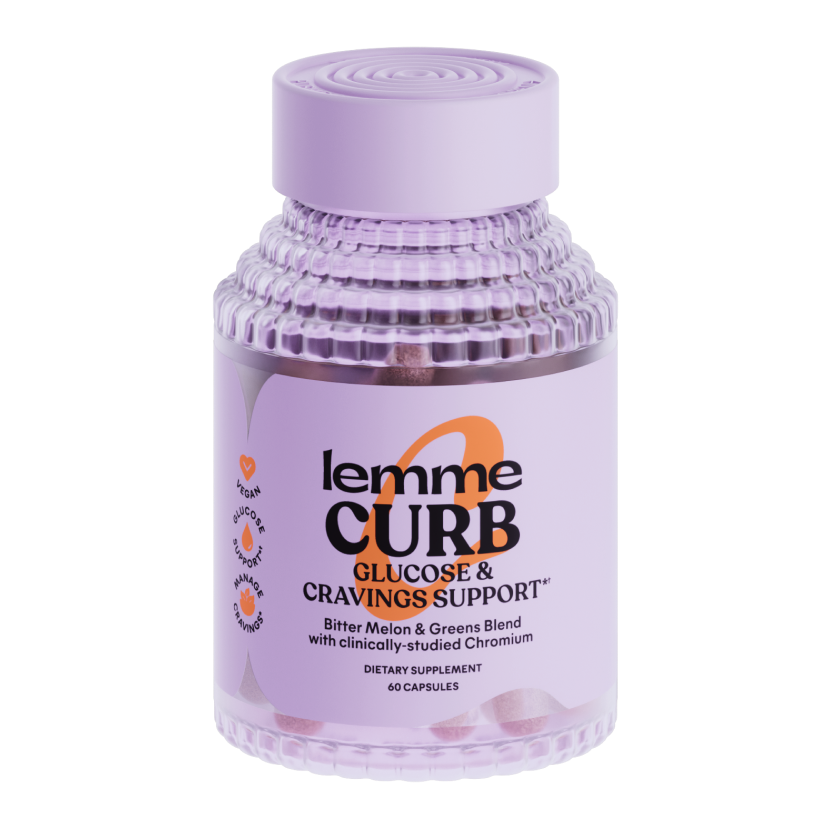
Gut Health and the Immune System: Healthy Living Starts in the Gut
Did you know that there is a strong interplay between gastroenterology and immunology? Your gut microbiome can have a huge impact on many different aspects of your overall health, including your immune system strength and function.
What are some symptoms of poor gut health, and how might your gut microbiome connect to your immune system to help influence your immune response?
Today, Lemme is here to talk about the connection between your gut health and immune system. Read on to learn more about how you can support your immune function and gut health together.
How Does Your Immune System Work?
Your immune system is your body's natural defense against foreign invaders that can cause illness or infection. Any outside source your body views as threatening is classified as an invader, although most commonly, the invader is a pathogen (bacteria, viruses, or other microorganisms that can cause disease).
There are many different organs, cells, and proteins that work together to make up your immune system. When a foreign invader, also known as an antigen, enters your body, all parts of your immune system work together to identify, target, and fight off the antigen.
Specific immune cells called B lymphocytes produce “labels'' for antigens. These labels are known as antibodies or immunoglobulins. Immunoglobulins are protein labels that recognize and then attach to antigens, tagging them as foreign and potentially dangerous substances in your body.
Once tagged, different immune cells called T cells work to fight and destroy the antigens. At the same time, the T cells leave the antibodies untouched, just in case the same pathogen or other invader returns.
Antibodies are how vaccines can help protect you from illness or infection. When you get a vaccine, you receive an injection with a micro amount of an inactive antigen that the body can identify and figure out how to attack. That way, when you are exposed to an active version of that same pathogen, your body has already built up a defense mechanism to fight off your exposure to the dangerous invader.
How Are the Gut and Immune System Connected?
Your gastrointestinal system is home to trillions of different microorganisms, including bacteria, yeasts, and fungi. Some of these gut and intestinal microbiota are good, and some of them are bad, but a healthy gut microbiome incorporates just the right balance between the two.
This healthy gut microbiome means that many beneficial bacteria line the walls of your gastrointestinal tract, which bolsters these organ walls to make them less permeable to bad microorganisms and pathogens that could pass through.
When pathogens enter your gut, they can subsequently pass into your bloodstream and travel to other organs where they can cause trouble. Thus, a healthy gut with a well-balanced microbiome can help protect you from illness and infection.
Additionally, a healthy gut can help support homeostasis and overall immune function, which can help create a strong immune response to fight off foreign invaders and keep you feeling your best, healthiest self.
What Are the Symptoms of Poor Gut Health?
Different hallmark symptoms can indicate you have poor gut health, including bloating, discomfort after meals, and gas.
Bloating
Bloating occurs when you experience uncomfortable feelings of tightness, stretching, and pressure in your stomach. It is common to experience bloating after you eat, especially if you have a food sensitivity.
When you eat a food you are sensitive to, your body views it as “foreign” and believes it cannot process the substance. As a response, your body triggers a reaction in your immune system that can yield uncomfortable symptoms such as diarrhea, abdominal pain, and bloating.
Eating too quickly can also cause bloating, as well as an imbalance in your gut microbiome such that you have more bad bacteria than good bacteria in your gut or intestine.
Digestive issues, such as constipation or acid reflux, can also lead to bloating and cause additional discomfort after meals.
Discomfort After Meals
In addition to bloating, if you experience other discomfort after eating, such as irregular bowel movements, diarrhea, stomach pain, cramping, or nausea, you might have poor gut health.
Usually, an imbalance in the beneficial bacteria that colonize your gut contributes to this post-meal discomfort. Food intolerances or other digestive issues can also contribute to discomfort after meals.
Gas
Passing gas, known as flatus, is a common and natural body process. However, when you pass gas in excess, this could be a sign that you have an unhealthy gut.
Gas occurs when there is a buildup of air in your intestines. If your gastrointestinal system lacks the right balance of healthy bacteria needed to digest and ferment food, you could experience excess gas and a decline in gut health.
How Can You Support Gut Health?
Fortunately, there are many lifestyle changes you can make to support your gut health, including maintaining a balanced diet, supplementing with probiotics, managing your stress, and engaging in regular exercise.
Maintain a Balanced Diet
A well-balanced diet with abundant fruits, vegetables, whole grains, lean proteins, nuts, and seeds can have a huge positive impact on your gut health. Try to limit refined or processed foods that lack important nutrients and vitamins.
Additionally, a diet rich in prebiotic and probiotic foods can help colonize the good bacteria in your gut and intestine and can support good gut health.
Prebiotic dietary sources include non-digestible carbohydrates, like artichokes, legumes, asparagus, and bananas. These prebiotic foods bypass your digestive enzymes and act as a food source for the beneficial bacteria in your gut — probiotics feed on prebiotics to produce short-chain fatty acids as metabolites to fuel their survival.
Probiotic dietary sources include fermented foods such as sauerkraut, kimchi, kefir, and yogurt. You can also take probiotic supplements to support a healthy colony of beneficial gut bacteria.
Supplement With Probiotics
Probiotic supplements can help restore the microbial balance in your gut and intestine. Moreover, they can help provide relief from digestive issues such as discomfort after meals, gas, and bloating.
It is important to choose a clinically studied supplement to incorporate into your daily routine, such as Lemme Debloat. Lemme Debloat is a dietary supplement that contains several clinically-studied ingredients, including xylooligosaccharide prebiotics and a probiotic blend of two different beneficial bacterial strains (Lactobacillus and Bifidobacterium).
With just two gummies a day, you can support your bowel regularity and your immune, digestive, and gut health and may see noticeable relief from gas and bloating.
Manage Your Stress
Stress can impact the levels of beneficial bacteria present in your gastrointestinal system.
Incorporating stress management into your daily routine can support your gut health and help restore balance to your gastrointestinal microbiome. Make sure you leave room in your daily schedule to practice self-care and allow yourself more time to decompress if you know you have a packed day ahead of you.
Get Regular Exercise
Incorporating exercise into your daily routine can also help support the good bacteria in your gut and can also, in turn, help support your overall health and wellness.
Regular exercise does not have to be intensive to have a big impact — even smaller approaches like going on a walk, taking time to practice yoga, or starting a deep breathing routine, can go a long way when it comes to your gut health and overall wellness.
The Bottom Line
Your immune system relies on the beneficial bacteria that line your gut and intestine walls to help protect against foreign invaders. An imbalance in your gut microbes can make your gastrointestinal system more permeable to pathogens — permeability may allow these pathogens to pass into your bloodstream and your immune system to cause illness or infection.
If you experience bloating, diarrhea, vomiting, nausea, or stomach pain, these are all signs that you may have poor gut health. Other forms of gut discomfort after meals, including cramping and constipation, as well as excessive gas, are also signs that you might have poor gut health that could impact your immune system health and function as well.
Fortunately, leading a wellness-oriented lifestyle with regular exercise, stress management, a healthy diet, and probiotic supplements can greatly help enhance your gut health and may help support a healthy immune system.
If you are thinking about making lifestyle modifications to support a healthier gut, it is important that you talk to your healthcare provider, especially if you are thinking about incorporating a new probiotic dietary supplement into your routine.
Looking for more tips on how to be your best you? Explore the rest of Lemme’s wellness blog here!
Sources:
A Brief Journey through the Immune System | American Society of Nephrology
The Scientific Basis for Probiotic Strains of Lactobacillus | Applied and Environmental Microbiology







